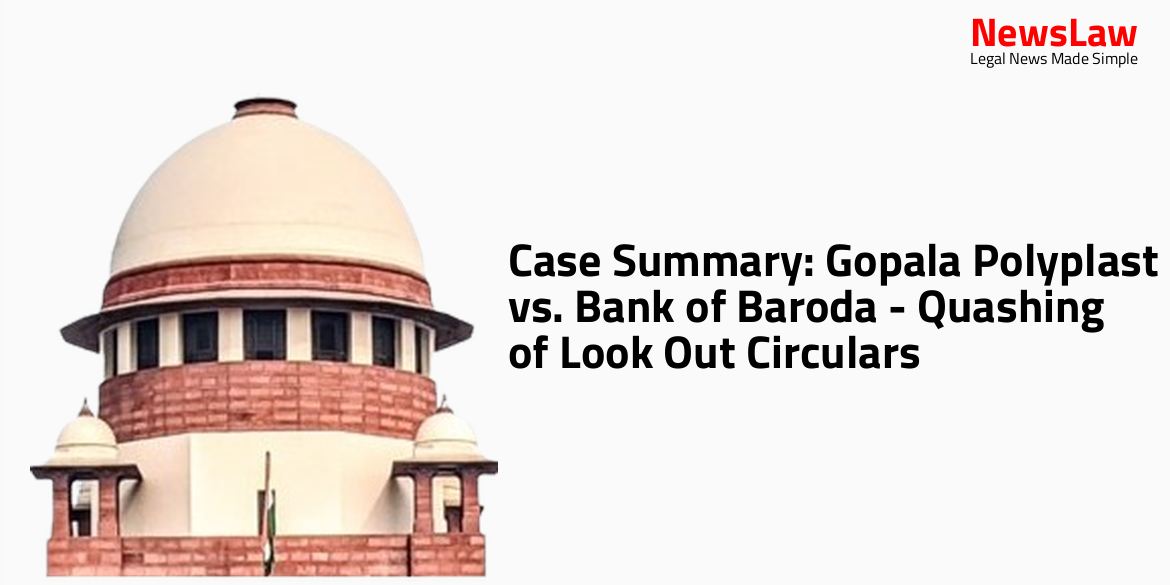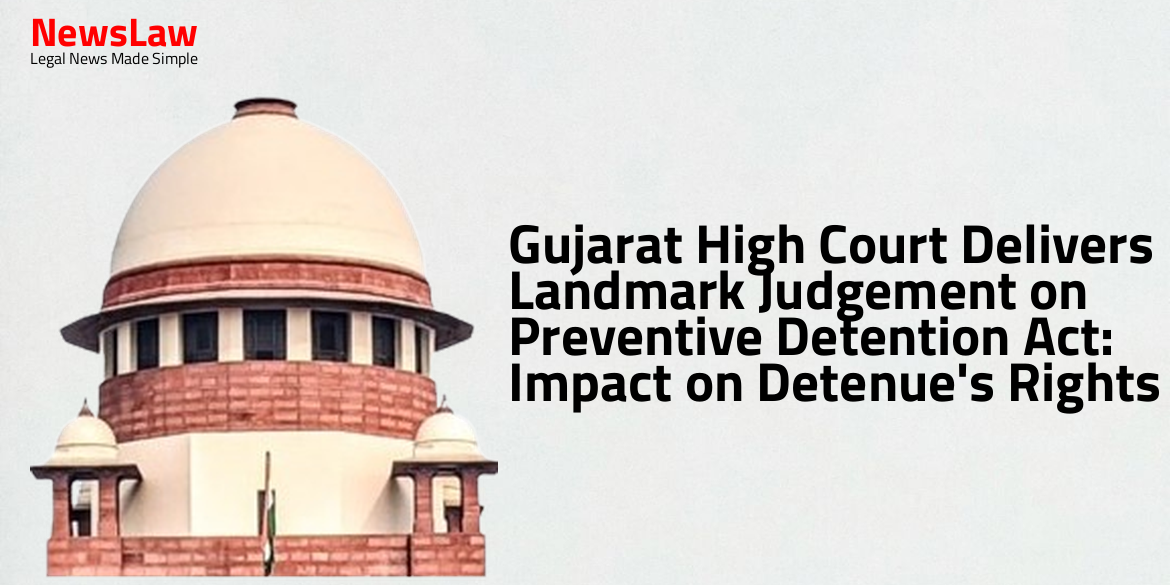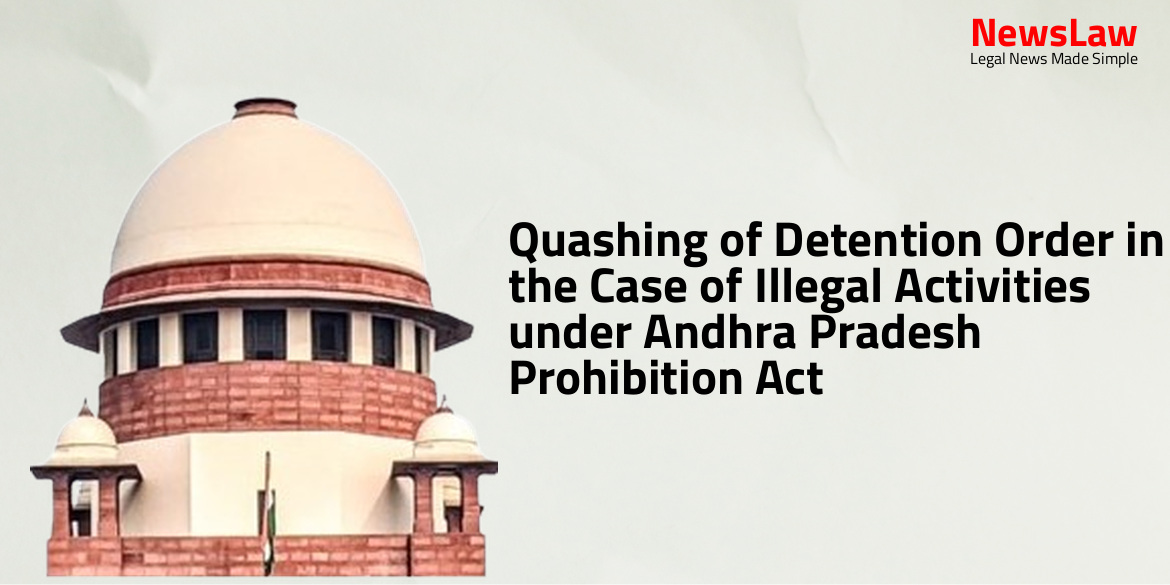In a significant ruling, the Gujarat High Court addressed the matter of Look Out Circulars in the case of Gopala Polyplast challenging Bank of Baroda. The Court’s decision to quash the LOCs raises important questions about individual liberties and the lawful issuance of such directives. Let’s delve into the details of this case and its impact on legal proceedings and personal rights.
Facts
- Bank of Baroda filed a complaint against Manoj Mahendra Somani and others for criminal conspiracy and cheating
- Allegations include diversion of funds by Gopala Polyplast Pvt Ltd
- Immigration officer stopped Manoj Mahendra Somani from travelling to Dubai due to a lookout circular
- Issuance of lookout circular justified in cases affecting public interest or economy
- High impact situations like squandering public money or defrauding depositors may lead to issuance of lookout circulars
- Lookout circulars should be based on seriousness of offenses and not just loan defaults
- Citizens should not be restricted in travel unless there is a significant impact on the country
Issue
- The issue at hand is whether the fair copy of the judgment should be shown to Their Lordships.
- Another question to consider is whether this case involves a substantial question of law regarding the interpretation of the Constitution of India or any order made thereunder.
Arguments
- The applicant, erstwhile Director of Gopala Polyplast, challenges the issuance of Look-Out Circular (LOC).
- The LOC was issued without following principles of natural justice, as no show cause notice or hearing was provided.
- The applicant argues that the LOC violates Article 21 of the Indian Constitution, which protects life and personal liberty.
- The LOC was issued on grounds of potential irregularities and economic loss if the applicant leaves the country.
- The applicant seeks a writ of mandamus to revoke the LOC.
- Mr. R.C. Kodekar, Standing Council for respondent no.2-CBI, argued that funds were diverted into individual accounts causing significant loss to the company and misused bank funds by repaying unsecured loans.
- Investigation is ongoing, and there is a concern that the applicant may flee the country to avoid legal proceedings.
- Mr. Kshitij Amin, Standing Council for Union of India and Bureau of Immigration, supported the LOCs based on inputs from the bank and public interest.
- The right to travel abroad is protected under Article 21 of the Constitution of India.
- The applicant has cooperated with the investigation and contested the recovery suit before the DRT.
- The applicant was never summoned by the police after the FIR was registered, indicating that personal presence is not essential due to the case’s reliance on documentary evidence.
- The LOC restricts the applicant’s rights unlawfully and arbitrarily as the necessary conditions for its issuance are absent.
Analysis
- The Look Out Circular in this case has not been produced by the Indian Overseas Bank, rendering the Court unable to refer to its contents issued against the petitioners.
- It is evident that the grounds used against the petitioners for the LOC issuance pertain to the economic interests of India, which is a way to prevent flight risks where individuals may refrain from returning to India.
- The revised guidelines mention that LOCs can be issued in exceptional cases not covered by the guidelines, specifically on grounds related to sovereignty, security, integrity, bilateral relations, economic interest of India, potential terrorism acts, or when it is in the larger public interest.
- The bank’s apprehension is understandable, especially in cases where loan amounts are substantial and potential evasions may impact the recovery process.
- The Court emphasizes that LOCs should not be issued as a matter of course but in exceptional circumstances where there are valid reasons, such as deliberately evading arrest or trial proceedings.
- The petitioner’s rights, especially the fundamental right to travel abroad as guaranteed under Article 21 of the Constitution of India, deserve protection from arbitrary LOCs that impede this right without valid reasons.
- The Court notes the lack of evidence supporting the claim that the petitioners leaving the country would harm India’s economic interest, raising doubts about the necessity of the LOC in this case.
- The judgment criticizes the unregulated abuse of power by banks in issuing LOCs, emphasizing the need for checks and balances to prevent unjust restrictions on individuals’ movements.
- It is highlighted that while LOCs can be essential for preventing individuals from fleeing the country to avoid legal proceedings, they should not be misused as a general tool for debt recovery without exceptional circumstances.
- The analysis underscores the importance of fair procedures, reviewing LOC requests, and considering individual circumstances before restricting a person’s right to travel.
- The expression ‘procedure established by law’ does not mean any arbitrary or fanciful procedure.
- The procedure must be fair, just, and reasonable.
- Look Out Circulars are coercive measures to make a person surrender to the Investigating Agency or a Court of Law.
- Some cases may justify the issuance of Look Out Circulars if the conduct affects public interest or has an adverse impact on the economy.
- Issuance of Look Out Circulars cannot be in every case of bank loan defaults or credit facilities availed for business.
- Citizens should not be deprived of liberty to travel merely due to their participation in business.
- Circumstances must reveal a higher gravity and larger impact on the country to justify the issuance of Look Out Circulars.
- The Court found no acceptable grounds or circumstances for the LOCs to be used against the applicant.
- The conditions precedent for issuance of the LOCs were absent in the present case.
- The impugned LOCs and their extensions issued against the applicant are quashed and set aside.
- The observations made are prima-facie, tentative, and confined to the adjudication of the present application.
- The order allowing the application is subject to the investigation of the FIR and does not impact it in any manner.
Case Title: MANOJ MAHENDRA SOMANI Vs. UNION OF INDIA
Case Number: R/SCR.A/3235/2022



